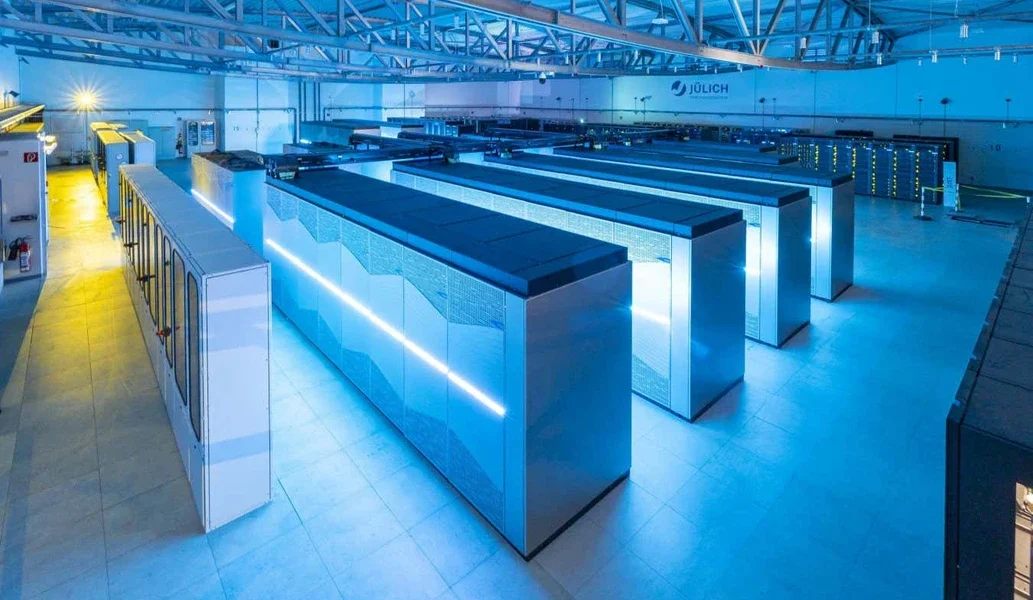Europe to Build the World’s Fastest Supercomputer in 2024: JUPITER
Europe is set to achieve a significant milestone in the field of supercomputing with the plans to construct the world’s fastest supercomputer in 2024. Named JUPITER, this exascale supercomputer will be housed at the esteemed Jülich Supercomputing Centre in Germany, further solidifying Europe’s position in the global technological landscape.
The Exascale Supercomputer JUPITER
The first exascale computer in Europe, JUPITER, is slated to be fully operational by next year, marking a monumental leap in Computing power. With its projected capabilities, JUPITER may emerge as the most powerful computer globally, surpassing existing supercomputers. This groundbreaking initiative will open doors to experiments and simulations that are currently only achievable on a limited number of machines predominantly located in the US and china.
What Sets JUPITER Apart?
JUPITER’s unparalleled potential lies in its capacity for conducting a billion billion operations per second, known as an exaflop. This remarkable capability positions JUPITER on the forefront of supercomputing technology and signifies a significant leap forward in computational prowess. Presently, only a handful of supercomputers in the world officially possess the ability to execute such complex calculations, highlighting the exceptional nature of JUPITER.
Impact on Scientific research
The advent of JUPITER is poised to revolutionize scientific research by enabling simulations and experiments that were previously beyond the reach of conventional Computing systems. The supercomputer’s exascale capabilities will facilitate the tackling of complex global challenges, leading to breakthroughs across various scientific domains. Moreover, JUPITER’s potential extends to driving advancements in fields such as climate modeling, material Science, and medicine, with implications for enhancing overall quality of life.
Collaborative Endeavor and Technological Innovation
The creation of JUPITER represents a collaborative effort, drawing on the expertise of leading researchers, scientists, and technological innovators from across Europe. This initiative underscores a commitment to collective progress and signifies a concerted push towards fostering Innovation and technological sovereignty within the region. By harnessing the potential of JUPITER, Europe aims to fortify its position as a global leader in advanced Computing and pave the way for future breakthroughs in computational capabilities.
Implications for European Scientific Advancement
The establishment of JUPITER heralds a new era for European scientific advancement and technological prowess. This bold endeavor reinforces Europe’s commitment to fostering a thriving ecosystem for cutting-edge research and Innovation, propelling the region to the forefront of global scientific Leadership. By leveraging the capabilities of JUPITER, European institutions and researchers are poised to propel pioneering discoveries and advancements, positioning the continent as a nexus of scientific excellence.
Conclusion
In conclusion, the imminent debut of JUPITER, Europe’s first exascale supercomputer, signifies a monumental leap forward in Computing power and scientific research capabilities. As the world eagerly anticipates the arrival of this transformative technology, the implications of JUPITER transcend the realm of computational prowess, promising breakthroughs that will resonate across diverse scientific disciplines. Europe’s strides in supercomputing exemplify a commitment to shaping the future of technological Innovation on a global scale, marking a defining moment in the evolution of advanced Computing.
Source: newscientist








No Comments